As many dream about the future, there are those building it in the present.
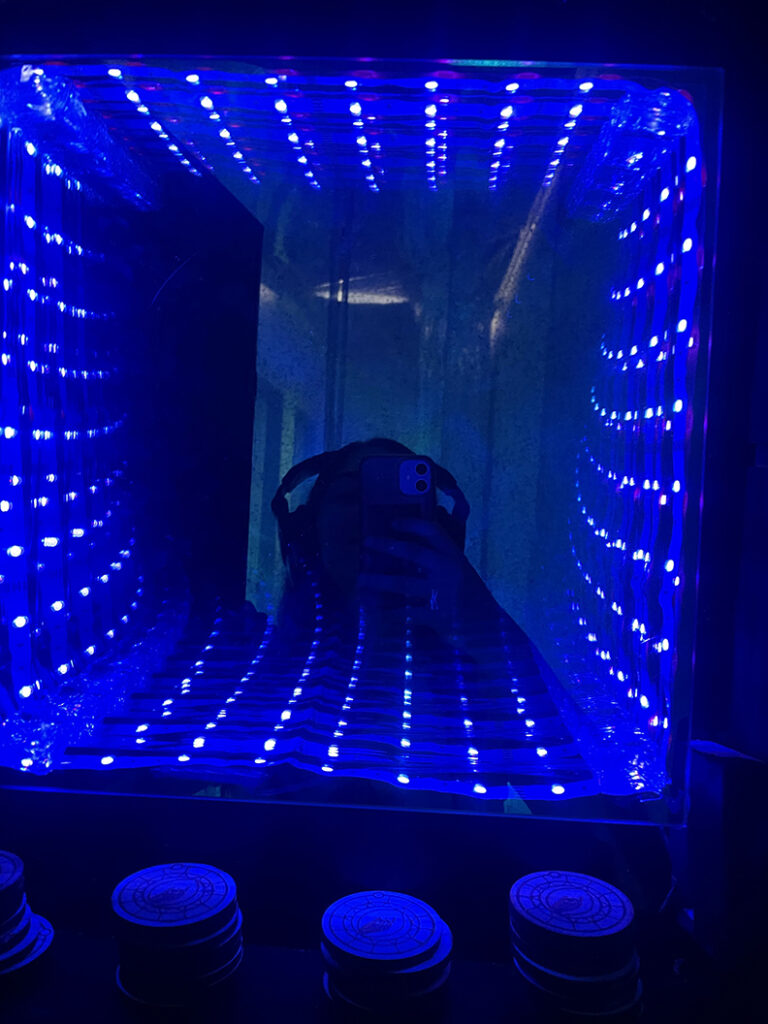
By Haley Noble
Technology has become an ever-changing, ever-improving form of study and practice in today’s world. We’ve seen things like the iPod evolve into the iPhone, standard vehicles evolve into self- driving cars and on-screen video games made into virtual reality experiences. It’s a fast-paced industry that students and educators have tapped into to look forward into what’s big, what’s next and what they can do with it when given spaces and time to focus.
Two students at UT Austin’s Texas Immersive Institute (TXI) received nominations for the 2023 Yugo British Academy of Film and Television Arts (BAFTA) Student Awards shortlist for their immersive projects. These projects allow students to combine technology and design to create a showcase.
Graduate students Brynn Jorgenson and Madison Phelan were each given this opportunity by joining TXI at UT, a program that allows them to look toward the future and where they are given the tools to do so.
“TXI is one of the reasons I went to UT Austin,” Jorgenson says. “It’s this wonderful intersection of technology, creativity and storytelling. Being able to think about new media spaces was really important to me.”
TXI students are given the creative freedom to apply their personal skills and interests to their work with the program.
“I loved being able to connect with audiences and build something out of that,” Phelan expresses. “I was able to marry the two backgrounds I have studied in my undergrad with Texas immersive.”
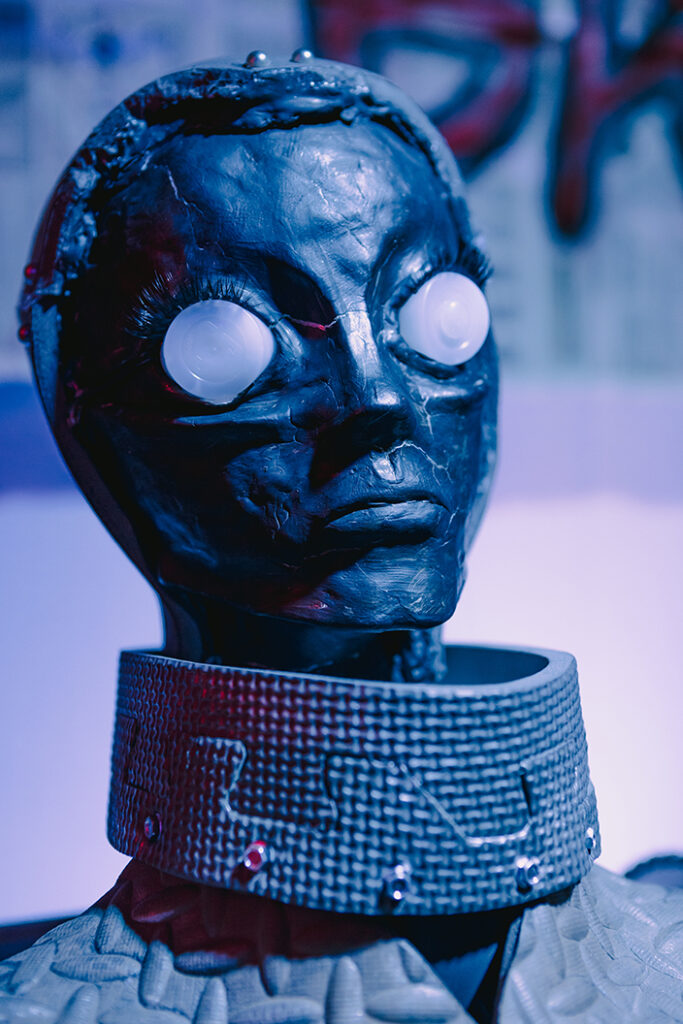
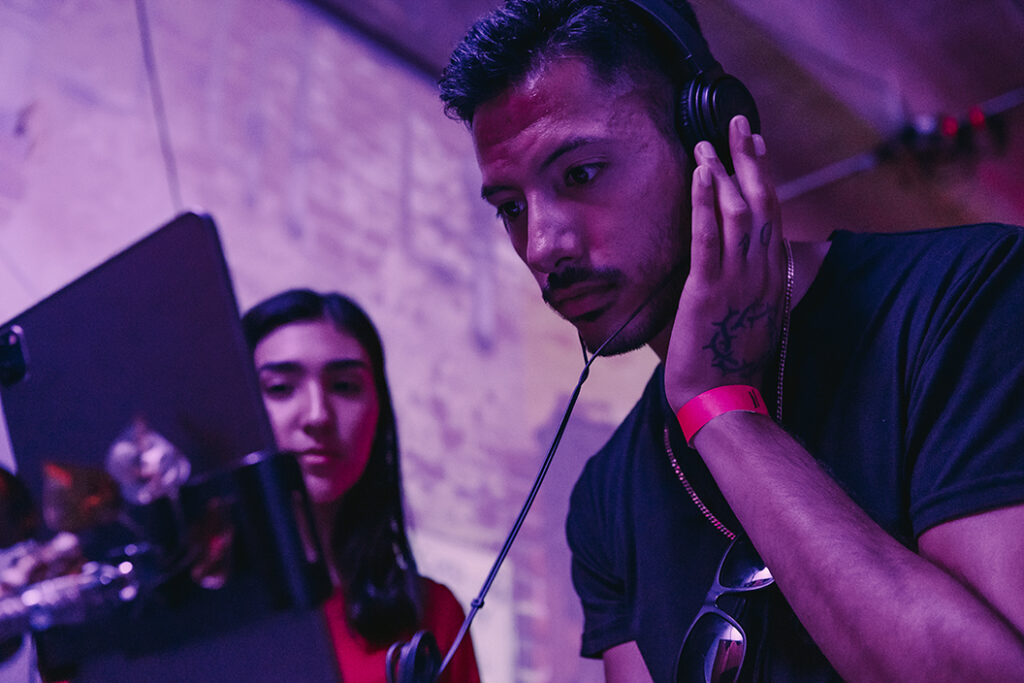
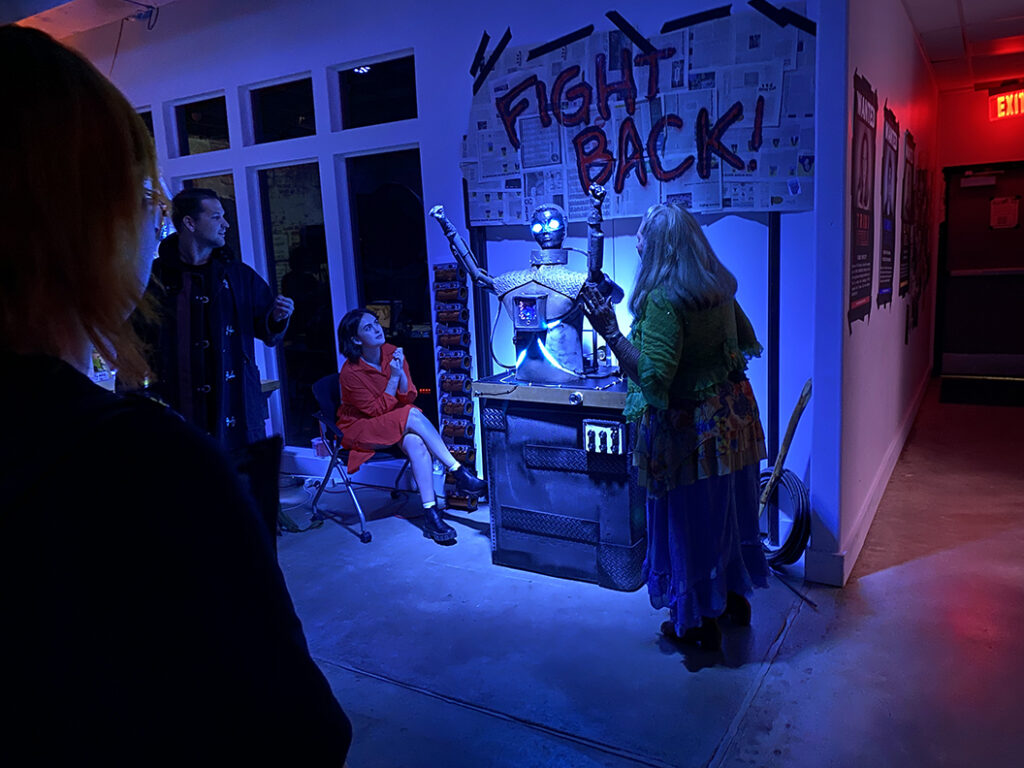
Both students were the creative directors for their projects, Jorgenson’s entitled “The In Between” and Phelan’s, “Roses of the Rubble.” Their direction, along with the help of fellow students, actors and educators, earned them both a spot on the BAFTA shortlist. To receive these nominations came as shocking yet thrilling news.
“I was very excited, but it was very unexpected,” Jorgenson says. “Texas Immersive is very new, so to make the shortlist was beyond any of my expectations.”
“It was a lot of hard work, and it was very reassuring to realize, ‘Wow, we did something’,” Phelan says. “Getting on the shortlist alone just felt like a big hug.”
Looking forward, both students realize what they can take from this experience when it comes to later projects.
“This has motivated me to apply for awards in the future and try to put my work out there. You never know what could happen,” Jorgenson says.
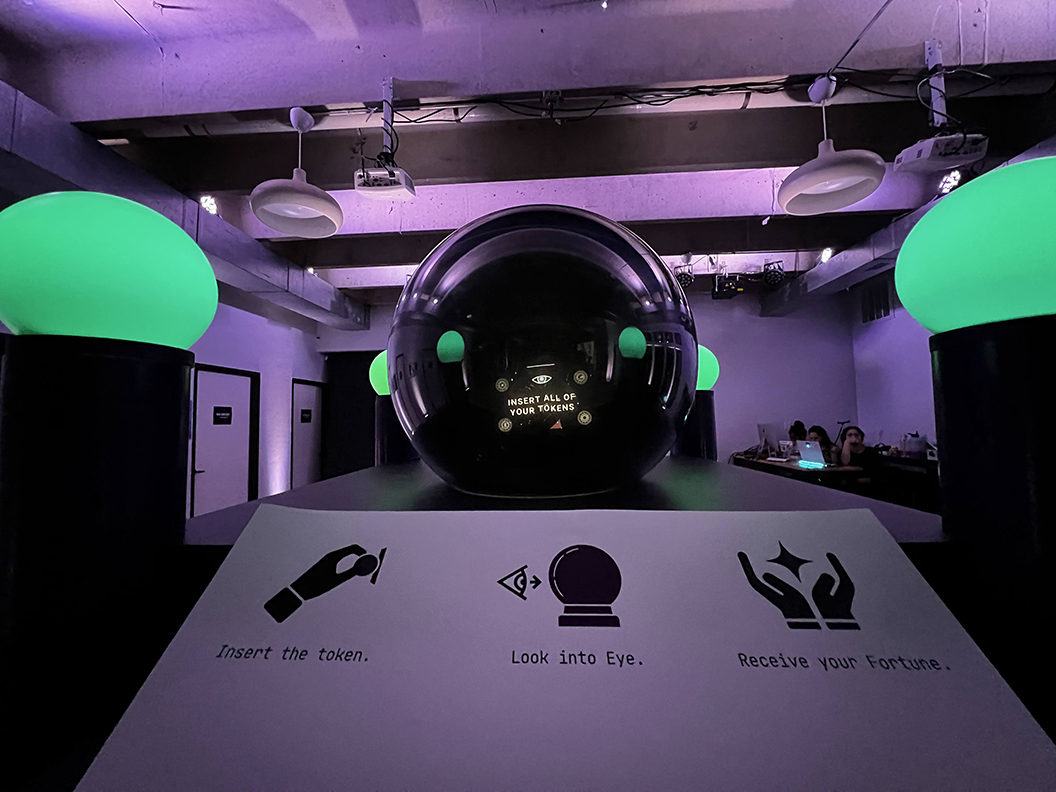
TXI’s founder and director, Erin Reilly, has a passion for allowing students the direction and space to explore the technology of the future. When observing how communication and technology were quickly changing, and realizing many students may not have access to the tools of new technology they need, she knew TXI could be an amazing opportunity for hands-on experience.
“I’ve always been a futurist when it comes to the ways we are engaging as audience members, and how we are shaping new forms of storytelling that push beyond the limits of television and film, advertising and journalism,” Reilly says. “These all have a past, but where is that future of storytelling? That’s what the Immersive Institute does.”
TXI is excelling and giving students more experience with their future world at a college level. Meanwhile, another school has decided to start as early as kindergarten.
The most recent report card for the nation’s education system, administered annually by National Assessment of Education Progress (NAEP), recently revealed an alarming truth. For middle school-aged children, math scores are the lowest they’ve been since 1990, reading scores since 2004. On average, 13-year-olds who took the NAEP Standardized Test scored 256 out of 500 in reading and 271 out of 500 in math. A number that’s declined from averages of 260 and 280, respectively, since 2020.
Founded in Austin, and with another campus in Brownsville, private K-12 institute Alpha School has decided to address this steady decline in educational standards with its revolutionary use of AI and tailored lesson plans. Alpha has crafted a different approach to learning. The school focuses on each individual student in lesson design and what each student may need to succeed. Whether that’s a quiet work space or working with peers. They prioritize not only traditional academics, like math and science, but also real-world skills, like public speaking.
Founder of Alpha, MacKenzie Price, first realized the need for a particular new kind of learning system when her own daughter told her she was bored of school.
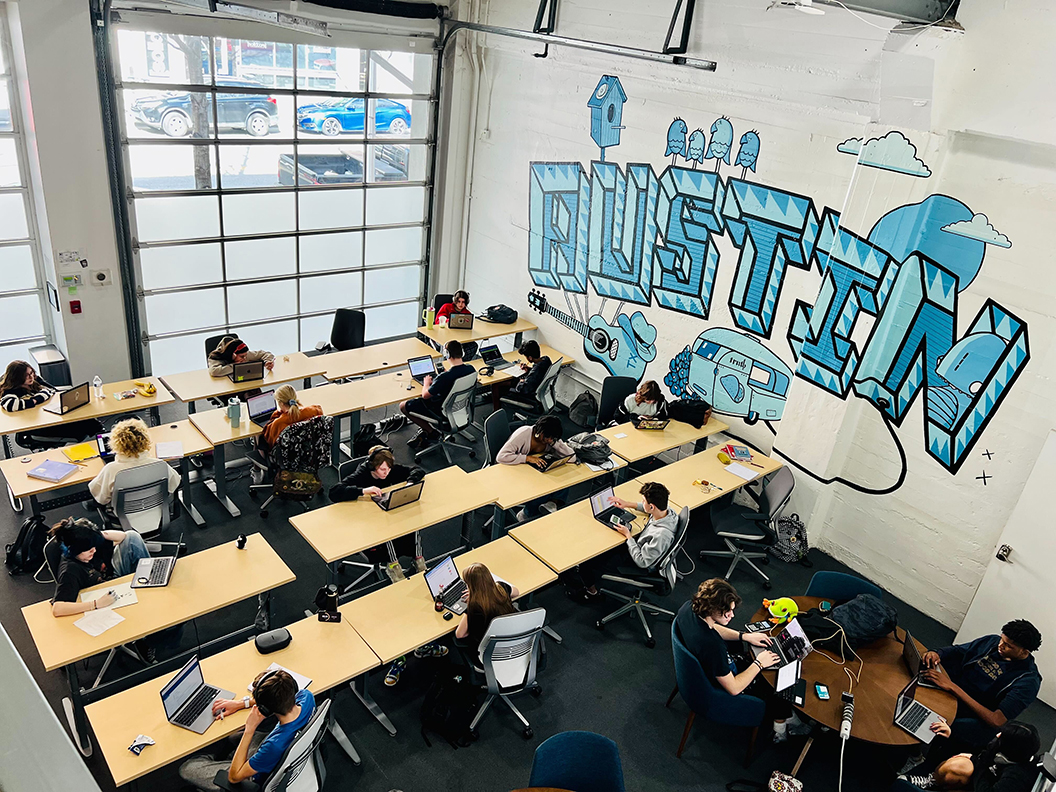
“Our school system is just not quite built in a way that helps kids really unlock their potential,” Price says. “I had this wake-up moment, where I realized, ‘I’ve got to do something, and it’s not within this traditional system.’ I decided to put my sleeves up and do a lot of work and ended up founding Alpha, which is a K-12 alternative education school.”
Alpha makes commitments to students and families when it comes to their experiences. The first is something you might never hear from a traditional education system: Your student will love school. Sure enough, surveys from the students show that 96% love attending Alpha.
“We don’t make it that kids love school because they’re just at Disneyland,” Price explains. “We make it because it turns out when a kid is challenged and connected with what they’re learning, they get invigorated and really excited about going to school.”
Another commitment Alpha makes is based on “two-hour learning.” Through each personalized lesson, students take two hours in the morning to learn curriculum that is based on their level of difficulty. The rest of the school day is then dedicated to real-world application. “This frees up the other four hours of the school day for us to work on helping kids become limitless,” Price says. “We do that based on workshops and project-based learning, where we help kids work on things like having a growth mindset. Learning how to create grit, learning how to have endurance, public speaking, working on entrepreneurship activities. All the things that gets kids really excited and connected to also understand, ‘Oh, this is why math is important.’”
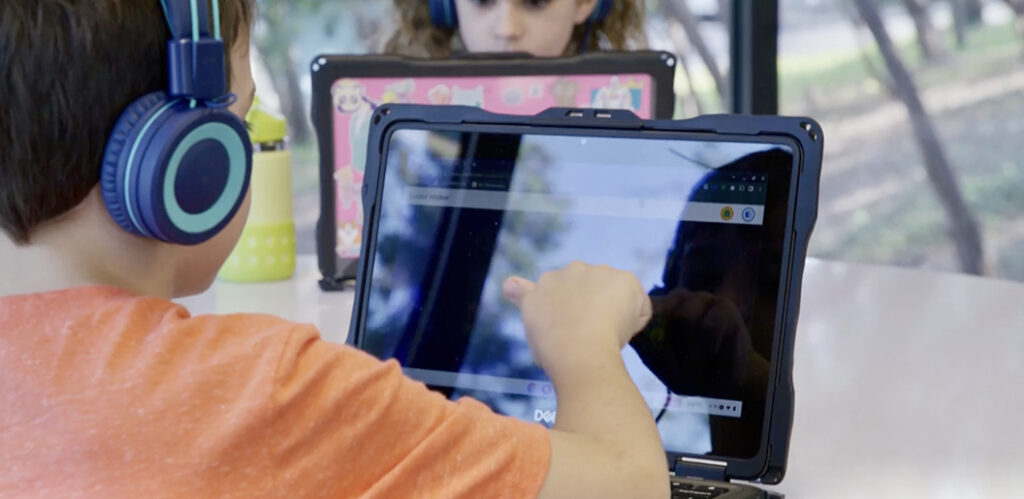
Alpha Facts
Alpha School has a proven track record of ensuring their students both learn at their pace and faster than most students in traditional educational environments. Here are some stats:
Alpha students learn two times faster than in a normal classroom, using AI and a personalized app-based system to learn their core curriculum (math, reading, science, history, etc.).
Alpha students have documented an impressive improvement curve. Students who come to Alpha scoring in the 25th to 35th percentile in subjects like math catapult into the 90th percentile within a year.
As a student body (average), Alpha students score in the top 2% on Texas MAP scores across the board (all subjects, all grades). In addition, 100% of Alpha students studying computer science scored a 5 on the AP exam (versus 27% nationally).
The technology Alpha uses, including artificial intelligence and certain apps, not only proves to be essential in learning, but also softens the task of teaching. Where, typically, teachers are given a class of students who are all taught the same material at the same level each day, Alpha’s technology creates targeted lessons to better help students in areas they are strong in and aids with anything they may have difficulty with. The teachers, or “guides” at Alpha, are then able to focus on personal interactions to learn students’ interests and use them to provide motivation.
“They can be working with the students one-on-one to learn what makes them excited and what would help their brain get excited to go learn something,” Price explains. “That is what teachers got into this business to do. They got into the business to impact young people and to change their lives. They didn’t get in the business to just grade papers and design lesson plans; they got in it to impact these children.”
Given these tools and access to such a new way of learning, Alpha students excel. They are able to combine academics with what they love and have accomplished great things so young. For instance, an incoming senior to Alpha who showed a passion for mountain biking. He raised $350,000 to build a mountain bike park in Texas, securing the land while still managing to earn an impressive 5 (the highest score) on his AP exams. Or the group of middle school students who wrote their own book about mental wellness for young people. After competing in a Shark Tank-style pitch session in front of local business leaders, the students received funding to release the book on Amazon.
At Alpha, the future for these students has, indeed, become limitless.
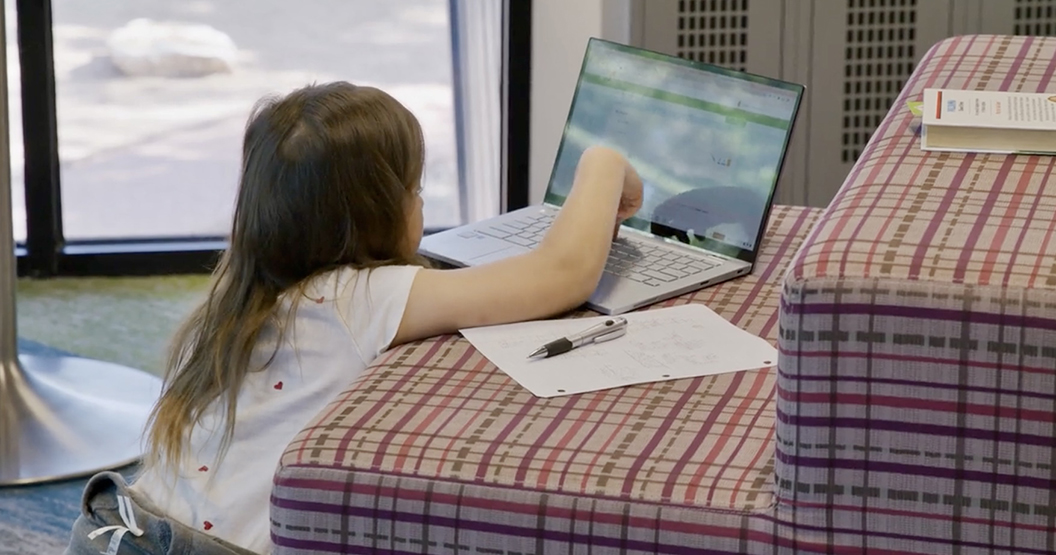
“That’s what we want, for our children, to be limitless,” Price expresses. “I think parents should ask what they believe a school should provide for their children. That’s where we get excited about it. We should be creating limitless kids who are excited. Passionate about what they do and have really figured out how they can go unlock their potential.”
Innovative new programs, like TXI, and the introduction of a new way of learning, like Alpha, prove that the changing art of technology is something to be embraced, not afraid of. By evolving with the world around us, the sky is truly the only limit.

